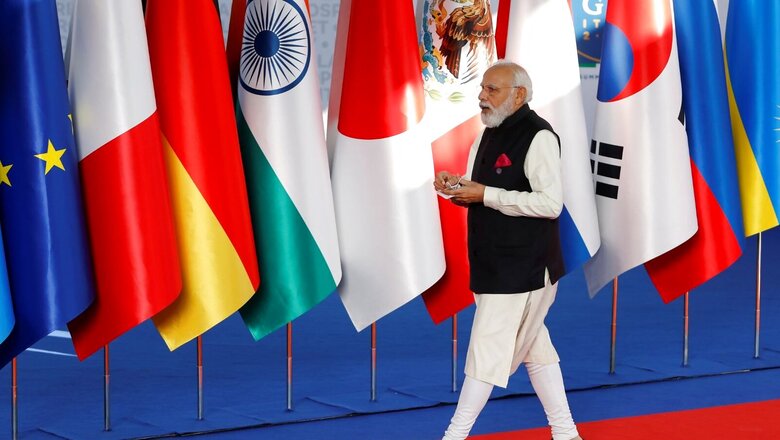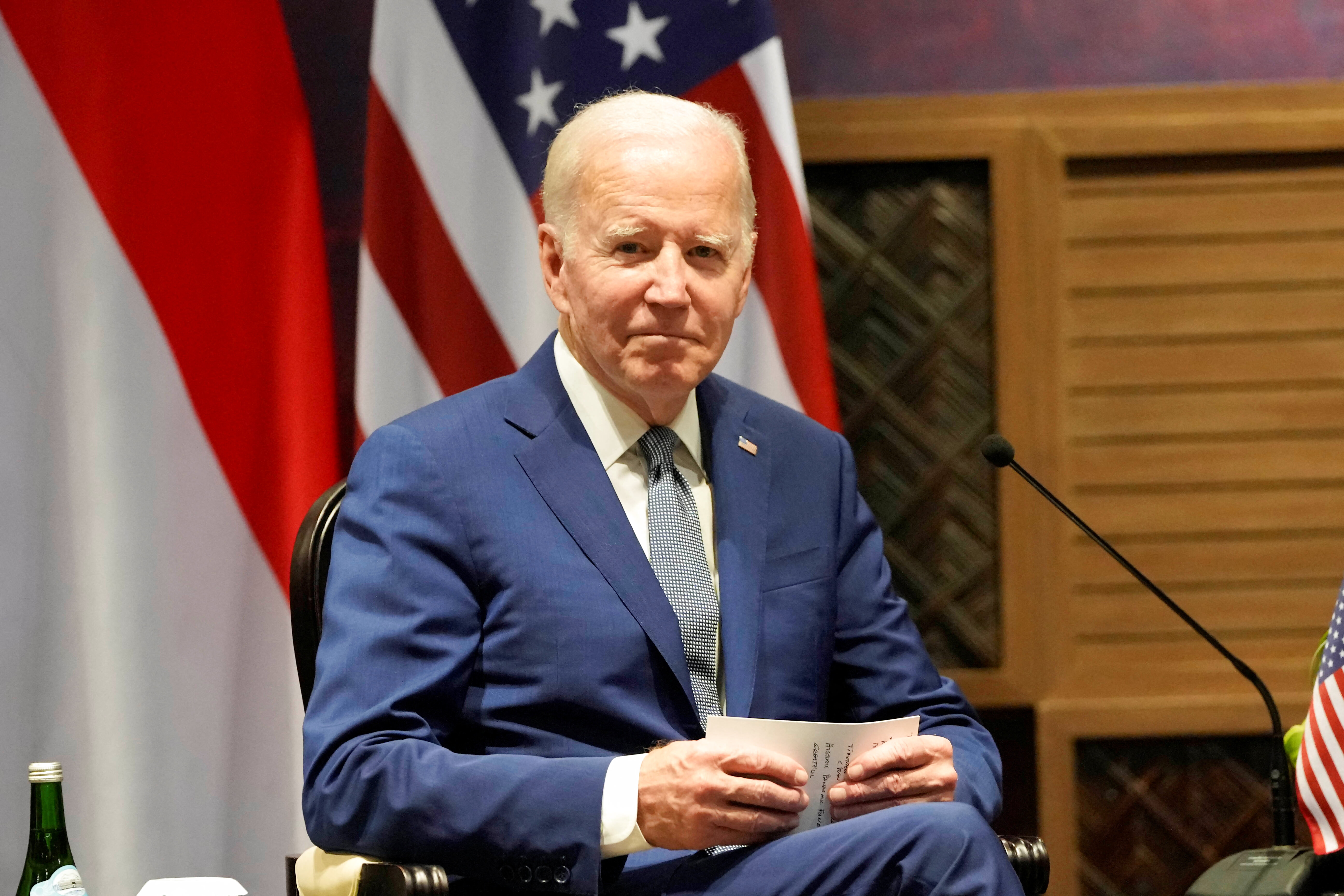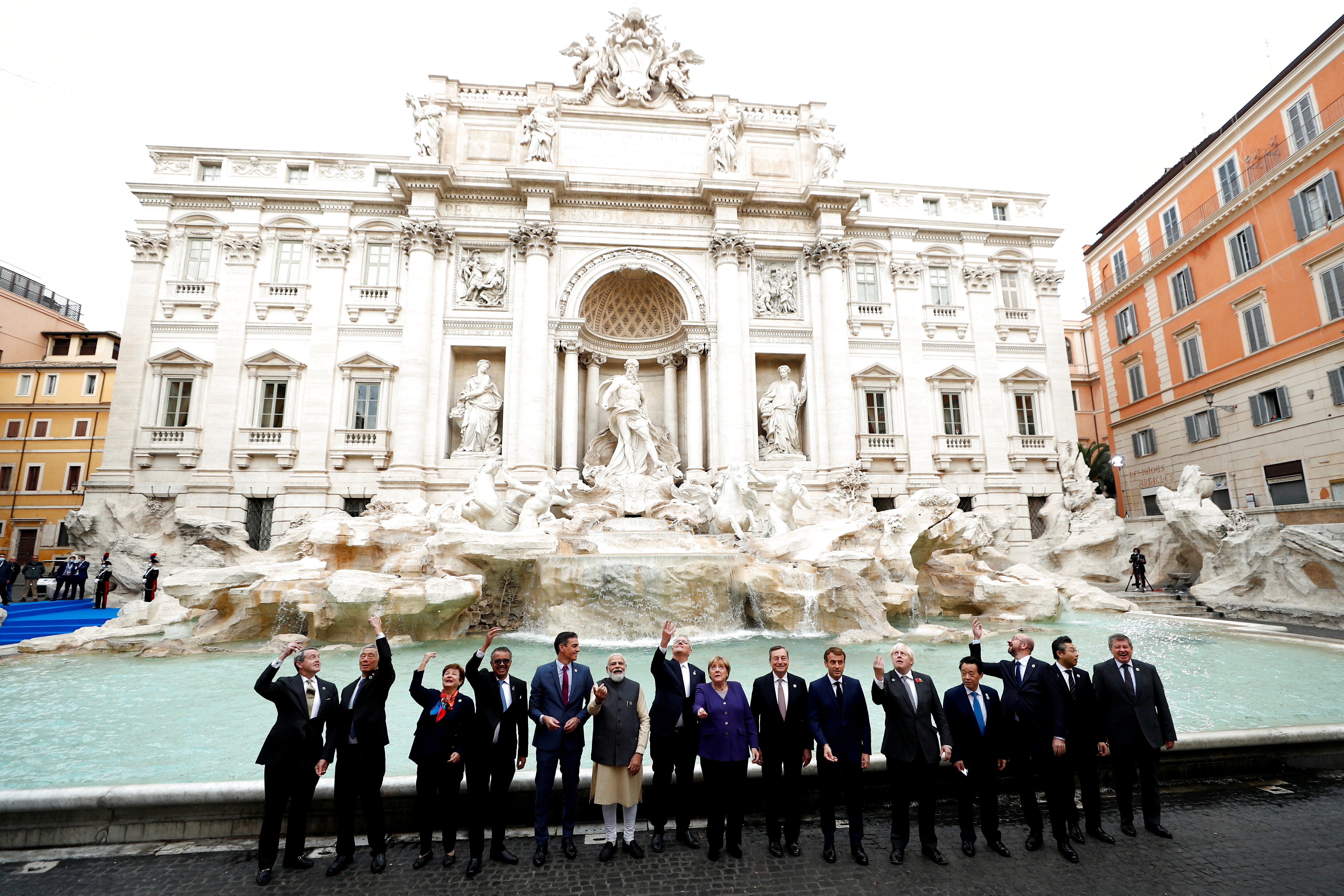
views
It’s a deeply divided world, and the fractures are more visible ahead of the G20 summit in Bali, Indonesia, set for today. Since the Russia-Ukraine war began, a myriad global repercussions – energy crisis, inflation, food shortage – have also initiated sides between global powers. It is in this background that India assumes its new diplomatic role – to ‘give a greater voice to the global south in international economic cooperation’ and to pitch reform for 21st-century institutions.
India has so far been perceived to remain equidistant to the East and West, calling for a diplomatic and peaceful resolution of the Ukraine-Russia war. Meanwhile, Moscow continues to be an important partner for New Delhi.
During the Bali Summit, I will have extensive discussions with other G20 Leaders on key issues of global concern, such as reviving global growth, food & energy security, environment, health, and digital transformation: PM Modi’s departure statement ahead of G20 Leaders’ Summit pic.twitter.com/VNAdCjD29E— ANI (@ANI) November 14, 2022
The country’s take will see further enumeration as Prime Minister Narendra Modi prepares for a number of bilateral meetings with world leaders – according to reports he may meet UK’s newly-elected PM Rishi Sunak, Saudi Crown Prince Mohammed bin Salman, French President Emmanuel Macron, among other leaders. Whether or not all these bilaterals take place, India has the mammoth task of outlining its G20 approach – ahead of assuming the formal presidency of the organisation on December 1 this year.
News18 gives a primer on the significance of the G20, why India’s upcoming presidency is important, and the key events highlighted on the body’s 14th summit being held in Bali:
What is the G20 & Theme for this Summit?
The Group of Twenty, also known as the G20, is an intergovernmental forum of the world’s major developed and developing economies. India, Australia, Argentina, Brazil, Canada, China, France, Germany, Indonesia, Italy, Japan, Republic of Korea, Mexico, Russia, Saudi Arabia, South Africa, Turkey, the United Kingdom, the United States, and the European Union are among them. The G20 is the forum for international economic cooperation, representing roughly 85% of global GDP, more than 75% of global trade, and roughly two-thirds of the global population.
“Recover Together, Recover Stronger” – the theme picked by Indonesia when it took over the presidency of G20 a year ago appeared apt at that time for the group of the world’s major economies fighting the effects of the Covid pandemic. But just ahead of the November 15-16 summit of the Group of 20 in the upmarket Nusa Dua area of the resort Island, this slogan – painted on buses and on billboards – seems slightly dated. Russia’s war in Ukraine has piled more economic challenges onto the world, threatening food and energy shortages.
Apart from the Russia-Ukraine conflict and its impact on the global economy, another event being watched with interest is a meeting expected Monday between US President Joe Biden and Chinese President Xi Jinping.

The relations between the two countries plummeted when US House Speaker Nancy Pelosi visited Taiwan in August, an event Beijing saw as a deliberate provocation. Beijing reacted with a series of military exercises around the self-ruled island.
How G-20 Works
In the aftermath of the Asian financial crisis, the G20 was formed in 1999 as a response mechanism. The G20 was created as a forum for Finance Ministers and Central Bank Governors to discuss global economic and financial issues. It was later elevated to the level of Heads of State and Government and dubbed the “premier forum for international economic cooperation.”
The project is divided into two sections: the Finance Track and the Sherpa Track, according to a report by Financial Express. Within the two tracks, there are thematically oriented working groups comprised of representatives from member ministries as well as guest countries and various international organisations. Throughout the term of each Presidency, the working groups meet on a regular basis.
The G20’s initial focus was primarily on broad macroeconomic policy, but it has since broadened its scope to include trade, climate change, sustainable development, energy, environment, climate change, and anti-corruption. The agenda is also influenced by current economic developments as well as previous years’ tasks and goals.
A Divided G-20?
The G20’s credibility has suffered in recent months, amid an internal schism is all too visible. Russian President Vladimir Putin has opted out of the Bali summit and is sending foreign minister Sergei Lavrov to represent the country.
But western leaders who seemed to be preparing for a possible showdown over Russia’s invasion of Ukraine are unlikely to back down. Russia can expect flak, for instance, when the summit discusses “food and energy security”, one of three sessions on its official agenda.

Britain’s new Prime Minister Rishi Sunak made his intention clear before leaving London for the meeting. “This G20 Summit will not be business as usual,” he declared.
There is also speculation over difficulties in drafting the summit communique, a consensus document, with the Ukraine issue becoming a stumbling block. And there is talk that there could be trouble even when the leaders gather for the customary group photo at the end of the summit, with some possibly objecting to Lavrov being in the frame. Also, there is a possibility of host Indonesia getting Ukrainian President Vlodoymyr Zelensky to virtually address the gathering.
As India assumes the presidency soon, the country is expected to work out differences and lead from the front, while partaking in novel solutions to pave a remedial path to global problems.
India’s Evolving Priorities
Foreign Secretary Vinay Kwatra said on Sunday that Prime Minister Narendra Modi would have several bilateral interactions with world leaders at the G20 summit in Indonesia and would brief them on India’s evolving G20 priorities.
“On the sidelines of the Bali summit, Prime Minister Modi would have several bilateral interactions with the G20 leaders to brief them of course on India’s evolving G20 priorities as also to review key elements of bilateral engagement with these world leaders,” he said.
According to the Foreign Secretary, India’s G20 Presidency hopes to bring new strength, direction, and perspective to G20 discussions on a variety of topics, including green development, sustainable lifestyles, digital transformation, inclusive and resilient growth, and women-led development.
More importantly, he stated that India intends to give the global south a stronger voice in issues of international economic cooperation as well as the need for reformed 21st-century institutions.
Kwatra has also stated that India will strive to steer the G20 agenda for 2023 in a “representative and balanced manner,” and that the G20 Troika – which includes the current, incoming, and next presidencies of Indonesia, India, and Brazil – will include all developing economies for the first time.
Read all the Latest Explainers here




















Comments
0 comment